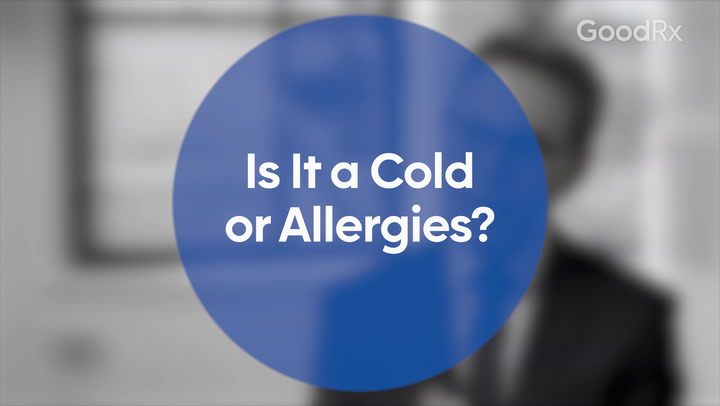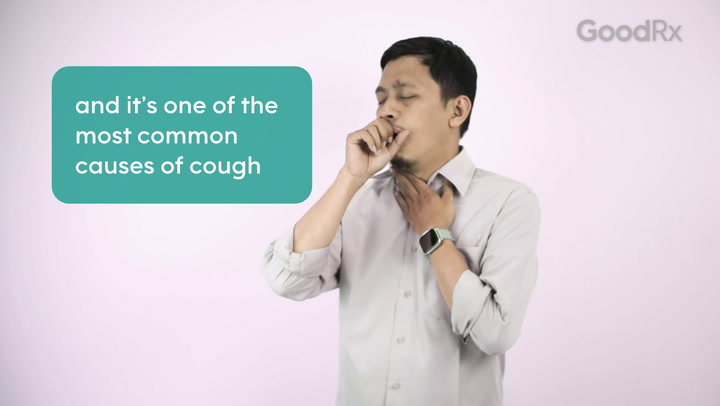
Does Vitamin C Help With Colds?
Key takeaways:
People often take vitamin C to prevent and treat cold symptoms, but the data is lacking on any real benefit.
When people take vitamin C regularly, it may work to shorten how long a cold lasts. But this effect is likely too small to notice a difference.
Although vitamin C may not help much with colds, it’s important to get enough of it every day. This promotes a healthy immune system.

During cold and flu season, people often turn to vitamin C (ascorbic acid) as a natural remedy for their symptoms. In fact, many over-the-counter (OTC) supplements for treating colds, like Airborne and Emergen-C, have high doses of vitamin C. These products claim to both prevent colds and help you get over them. But do they really work? Let’s look at what the research says.
Can vitamin C prevent a cold?
Vitamin C probably doesn’t help prevent a cold. Many people swear by vitamin C for keeping them healthy in cold and flu season. But studies have shown that taking vitamin C doesn’t help prevent colds for most people.
Taking a daily dose of at least 200 mg of vitamin C wasn’t shown to decrease your likelihood of getting sick if you’re exposed to a cold virus. Commonly used OTC products like Emergen-C and Airborne have 1,000 mg of vitamin C per packet or tablet. But higher doses of vitamin C aren’t better at preventing you from getting an upper respiratory infection like a cold or flu either.
Search and compare options
There may still be some use for daily vitamin C, though. It won’t keep you from getting sick. But it may help reduce your symptoms if you happen to get sick.
Can vitamin C help treat a cold once you’re sick?
Vitamin C might help to treat your cold. Research shows that regularly taking 1,000 mg to 2,000 mg of vitamin C may reduce how long cold symptoms last and how severe they are. But there are two important points about these findings:
These benefits were seen in people who take vitamin C everyday, even before cold symptoms start.
The decrease in symptom duration and severity is small. So, most people probably won’t notice the difference.
When people take vitamin C after symptoms have started, the results have been mixed. There are not many studies that look at the effect on vitamin C after symptoms have started. And some show a benefit while others don’t.
In the studies that suggest vitamin C may help after you get sick, researchers note that it should be started within 24 hours of your symptoms arriving. Also, people should take it for at least 5 days.
What’s vitamin C good for?
Vitamin C doesn’t appear to prevent colds or do much when it comes to reducing cold symptoms. But it still plays an important role in your health. It helps with:
Protecting cells from damage
Helping immune system function
Producing collagen (which helps in wound healing)
Can zinc help get rid of a cold? There’s some evidence to suggest that zinc can help you prevent and recover from a cold.
The best foods for your immune system: Here’s a list of the most important foods, nutrients, and supplements that can help keep your immune system strong.
What about vitamin D for colds? Some groups of people may benefit from taking vitamin D supplements to prevent getting sick.
Most people get enough vitamin C from their diets and don’t need OTC supplements. But some groups may be at an increased risk of low vitamin C levels. This includes people who:
Smoke
Have limited food variety in their daily diet
Have certain chronic diseases, like digestive disorders and cancer
What’s the recommended daily dose of vitamin C when you’re sick?
The average dose of vitamin C for colds is anywhere from 1,000 mg to 2,000 mg. This is based on the dose range in studies that looked at the safety and effectiveness of vitamin C for treating colds. These are high doses of vitamin C and above the recommended daily intake.
The recommended daily intake for adults is:
Males: 90 mg a day
Females: 75 mg a per day
Smokers: an extra 35 mg of vitamin C daily
It’s easy to meet your recommended intake with fruits and vegetables. For example, a medium orange has 70 mg of vitamin C. And a serving (½ cup) of sweet red pepper has 95 mg.
Can taking too much vitamin C have side effects?
Taking too much vitamin C can cause stomach upset. Vitamin C is safe for most people. But taking doses higher than 2,000 mg per day may lead to symptoms like:
Nausea
Stomach cramps
Vitamin C can also have other effects in people with chronic medical conditions. In people who have hemochromatosis (too much iron being stored in the body), vitamin C can make this condition worse.
Vitamin C can also interact with some medications and supplements. Make sure to let your primary care provider know if you’re thinking about taking vitamin C supplements. They can let you know if vitamin C is safe for you to take.
What are good vitamins for a cold besides vitamin C?
There are many other supplements that people use to help with cold symptoms, but one with proven data is zinc. Studies show that zinc can shorten colds when someone takes it within 24 hours after symptoms start.
Research also shows that honey can reduce cough and congestion related to colds. This seems most effective in children with a nighttime cough. But it’s important to never give honey to children under 1 year old. It may cause a dangerous infection with botulism.
Other supplements — like echinacea, garlic, and elderberry — are also commonly used for colds. But the evidence is lacking on their effectiveness in treating or preventing colds.
Frequently asked questions
There are no head-to-head comparisons of zinc versus vitamin C for a cold. So it’s hard to say which one is better. But several studies suggest that zinc can help prevent, shorten, and lessen the symptoms of a cold. The evidence for vitamin C is a little less convincing.
Emergen-C contains many different ingredients that claim to help when you’re sick. As the name implies, vitamin C is one of the main ingredients. But the research doesn’t suggest extra vitamin C will have much of an impact on your cold — even at very high doses like in Emergen-C.
There are many different vitamins and minerals that play an important role in keeping your immune system strong. Examples include:
Vitamin B
Vitamin C
Vitamin D
Zinc
Folate
Iron
Magnesium
Most people get enough of these nutrients through their regular diet. And they don’t have severe enough deficiencies to cause a weak immune system.
But if you have any chronic medical conditions and are concerned that you keep getting colds, it’s important to raise this concern with your primary care provider. They can help you figure out if you’re at risk for a deficiency and test your levels, if needed.
According to the available research, vitamin D is unlikely to help you get over a cold. There’s some evidence that people who’re low in vitamin D are more likely to catch a cold. So vitamin D supplements for these people may help prevent them from getting sick. But vitamin D won’t cure a cold.
The bottom line
People often use vitamin C to treat and prevent colds. While the data is mixed, taking vitamin C regularly doesn’t seem to help very much in keeping people from getting sick. It also doesn’t significantly shorten the time they’re sick. But vitamin C probably won’t harm you if you take it at the recommended doses. Make sure to talk to your healthcare team first, as vitamin C can interact with some medications and supplements.
Why trust our experts?


References
Bucher, A., et al. (2016). Vitamin C in the prevention and treatment of the common cold. American Journal of Lifestyle Medicine.
Hemilä, H., et al. (2013). Vitamin C for preventing and treating the common cold. The Cochrane Database of Systematic Reviews.
InformedHealth.org. (2023). Common colds: Does vitamin C keep you healthy? Institute for Quality and Efficiency in Health Care.
MedlinePlus. (2024). Vitamin C and colds.
National Institutes of Health Office of Dietary Supplements. (2021). Vitamin C: Fact sheet for health professionals.
National Institutes of Health Office of Dietary Supplements. (2023). Dietary supplements for immune function and infectious diseases: Fact sheet for health professionals.
NCCIH Clinical Digest. (2020). The common cold and complementary health approaches. National Center for Complementary and Integrative Health.

























